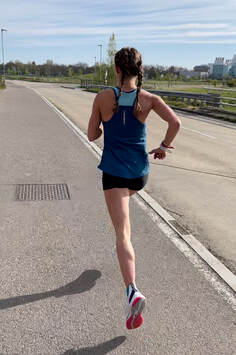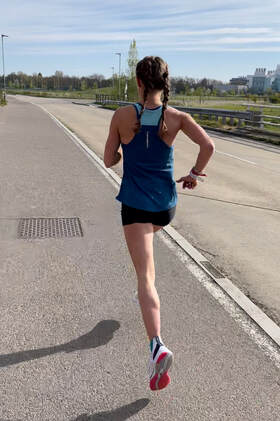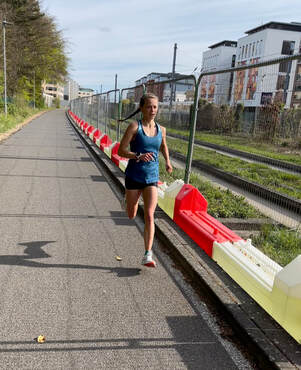|
Life can be difficult. It can throw challenges at us from all directions with little rest-bite in between them. It can really test your resilience in ways you didn’t even know needed testing, but that is the power of life. There is however a massive strength that comes from persisting and as cheesy as it sounds, never giving up when times get tough. Here is why you should never give up. Don’t know what’s around the corner. Tough times don’t last forever. They simply can’t. Even if they never fully go away, you learn to live in them and embrace the power they have provided you with. Whenever anything gets hard, it is important remind yourself that it will get better, because you don’t know what is around the corner. There is yet another cheesy quote that couldn’t speak more truth. It goes: Tough times don’t last, but tough people do. For this reason, see difficult times as a chance to develop and build yourself. You never know what is the other side of a difficult time until you get there, so persist because it may be very very bright. Will never succeed if you do. Whilst some peoples lives may look perfect from the outside, like nothing bad ever happens, it’s just not true. Nobody has the perfect life, because it doesn’t exist. No successful person ever experienced success without going through difficulty. This is because no route to success is straight forward. Therefore, instead of seeing challenges as something negative, be grateful for them, because they are helping you get where you want to go, more than you even realise. Challenges are part of the process to success. Know your worth.
Ultimately, we only give up on things in life because we do not think we are good enough to get through them. However, we are as good as we tell ourselves. There is no reason to believe that we aren’t good enough to succeed, therefore there is no concrete reason as to why we should give up. Just like the previous point mentioned, if you give up, you will never succeed, therefore you will never know just how good you could be. Keep going for yourself. Self-satisfaction. Finally, a lot of satisfaction comes from not giving up. Whatever happens, and whatever the outcome, you will know that you gave your all. This brings an incredible feeling, because you will never look back and think ‘what IF’. You can be proud that no matter what you persisted and did all you could. If anything, be proud of the effort you put in. If you ever feel lost for motivation as to why you should keep going when times get tough, I hope this helps remind you.
0 Comments
Feeling anxious is incredibly normal. I am yet to meet someone who does not deal with some sort of anxiety on some level. If there is someone out there that doesn’t, I’d love to meet you! However, feelings of anxiety can be overwhelming and all consuming at times. What is important, is how you deal with them in order to prevent them spiralling out of control. Reframe them. When I begin to feel a wave of anxiety and consuming thoughts approaching me, I work to reframe the thoughts. Anxious thoughts can be incredibly irrational, even though they may not seem like it at the time. Just because your brain is telling you something, doesn’t mean it’s true. For example, if your thoughts are telling you that you are not good enough, ask yourself why is it saying this? More often than not there is no genuine evidence to back up the thoughts. If you counter the thoughts by telling yourself, you have worked as hard as you can and you will give your best which is always enough, you can reframe the negativity. Ultimately being ‘good enough’ is unmeasurable and only created by you. These are the limits and constraints we put on ourselves. We will be the best we can be at any given moment, and that is alway enough. Additionally, our bodies feel the emotions we interpret them to feel. For example, if every time we were sad we told ourselves that we were scared, we might begin to interpret sadness as fear. Similarly, when we feel the physical and mental feelings of anxiety, we tell ourselves that we feel anxious. However, we can interpret this differently. We can tell ourselves that this simply building excitement. Going into a race, these feelings we call ‘anxiety’, are actually our body building up excitement that it will release when we race. This conservation process, allows us to perform to our best. So, conversely to feeling worried, we should feel relieved and reassured by these feelings. Body’s natural reaction.
It is also important to recognise that anxiety is a natural bodily reaction. It is at times our bodies way of preparing us for what is ahead. It is trying to protect and prepare us. For example, if you feel anxious going into a race, exam or important meeting, it is not necessarily a bad sign. It is a sign that you care, but also your body genuinely preparing yourself to have the energy to fight when you need to. If we did not feel anxious at important times, we would be too relaxed and may not perform as well as we could if our body had experienced the feelings we interpret as ‘anxiety’. Get outside. This is the number one response for me. As soon as anxious feelings arise, I get outside. Spending time in the fresh air, listening to nature, walking the dogs, or just sitting on the grass, makes me feel very grounded and prevents me from becoming over anxious. It allows me to find peace from the most simplest things in life and realise that there is so much more to life than the thoughts in my head. Not alone. Finally, you are NOT ALONE. Whilst feeling anxious can cause you to feel quite solitary at times. It is one of the most inclusive things there is. More people than you can imagine feel anxious at times, it just isn’t spoken about by everyone. Some people don’t even know that they experience anxiety because they reframe it into a different emotion. So, whenever you feel alone, read this, because I hope it reminds you that you are not. As a summer of racing gets closer and closer, sessions start to get a little bit faster. I’m not one to have a very high level of natural speed, so these sessions can come as a bit of a shock to the system, but I’m learning to love them more and more. Here are my three favourite speedier sessions. To prepare yourself even more for races, you may want to pull the spikes on. They can all be adapted to make them a little bit longer if you still want to get the volume in. 3 x 1200,400 + bonus 400. I used to hate speedier sessions, but I’m learning to love them, because ultimately, what’s not to like about making your weaknesses stronger? As soon as I see something less than 5k in volume in my training plan, I know it’s going to be fast. This is one of my faves. I tend to have 1 minute recovery between the 1200 and 400, and 4 minutes between sets. This gives you plenty of time to recover, but also the minutes between the reps really start to bite by the final set. I always try to focus on my form to distract me from my legs feeling tired. Get those legs turning over as quickly as you can and keep driving forward. 20x200
This session is great for getting your legs quickly changing from fast to slow, so you can deal with surges in races. I usually have 100m float as the recovery, so your legs constantly turn over and flow into the next rep. To start with the float feels nice, but trust me, by rep 12 you will start to feel it. 100m float goes very very quickly. If you want to up the volume, I sometimes add a tempo mile at the start and finish. The final mile also gets you used to running on tired legs as the fast 200’s will get that lactic flowing. 2k tempo + 2x400,300,200 (200 jog) This session is great to get the legs turning ahead of a race. The tempo allows you to warm your legs up before you spin them that bit faster. Also, not having too many reps, means you can go fast without worrying about tiring the legs massively ahead of racing. If you want to do this session outside of race week, you could do 3 sets just for slightly more volume and really hit them hard. Whether you love speed work or you hate it, it is a must, especially ahead of a summer of track racing. If you're unsure where to start, try one of these sessions and let me know how you get on! We always talk about listening to our bodies and understanding the warning signs/messages they tell us. Being able to understand what they are saying can be imperative in allowing yourself to improve as an athlete. However, there are times when it is worth NOT listening to your body. Controversial, I know. There is a lot of talk about intuitive eating. This is listening to your body and eating when it tells you it is hungry. This is great, but it doesn’t always work if you are an active person or an athlete. Why? Because we often need to eat more than our body tells us to. I used to believe that it was only acceptable to eat if I was really hungry. I would let myself get to the point where I felt lightheaded and struggled to move before I would allow myself to eat. This is a point we do not need to get to if we are lucky enough to have the privilege to avoid it. There is so much more to eating food than just to fill a hole. So, when is this sometimes the case? Because you want to! This is the only place to start. Sometimes you aren’t hungry at all, but something takes your fancy, and it is ok to eat it. You don’t always need to be at the point of hunger in order for it to be ok to eat. Food is a source of enjoyment for many, and for this reason, if you want to eat, don’t let yourself not. If you are a healthy individual, it is ok to eat whenever food takes your fancy! In the past I would’ve never let myself eat if I was not hungry, and for this reason I missed out on a lot of good food! So now, I eat whenever I want to. After training.
It is important to refuel your body after training in order to kickstart the recovery process. Quite often, as soon as you’ve finished training, you aren’t hungry, but the sooner you can get some fuel in, the quicker your body can begin to repair ahead of the next session. If you take a flask of milk, an energy bar, or my favourite, a carton of Drink EO3, you can get this into your system as soon as you are finished. It can take a little while to get into the routine, but as soon as it becomes habit, you don’t even think about whether you are hungry or not, because you know you need to refuel. When I was at my worst, exercise was a way to burn calories, therefore the last thing I wanted to do was eat more after I’d burnt them off. As a consequence, I lost any muscle and strength I had, because I was never giving my body the fuel it needed to repair and build. Before an early morning run. Sometimes if you train early in the morning, you aren’t hungry when you wake up, and therefore you decide to skip breakfast. However, I for one hate to run on empty. I don’t want my to body to eat into my fat stores too often, so waking up even 30 minutes early, allows me time to get a light snack in. This also prevents hitting that point 30 minutes into a run where all you want is food and hunger hits. A morning run is a lot more enjoyable, and also productive, when you have energy from a bit of food. For the social benefit. Not only is it a necessity, but food is also a social experience. We often meet up with friends for a cup of coffee and a bite to eat, at all times of the day, whether we are hungry or not. We don’t have to be hungry to justify going out for something to eat with a friend. I used to avoid social situations involving food because I did not want to eat, and consequently I lost out on a lot of amazing times with friends. Being able to eat for the social benefit of it is a valuable thing that helps build strong and happy bonds. So, next time you hesitate having a bite to eat because you aren't hungry enough, remind yourself that you don't always NEED to be super hungry to justify eating. Food serves a lot of other purposes, enjoy it. We are all different, in almost every single way. For this reason, what is right for you might not be right for somebody else. Just because you have seen someone else doing something, and it works for them, doesn’t mean it will work well for you. It might not. Growing up, you are surrounded by so many social pressures that encourage you to be the same as those around you. You feel that in order to be accepted, you need to fit in, therefore being different is not necessarily encouraged. You determine what is right or wrong based on what the majority around you are doing. However, as you get older, you realise that being different is actually a very valuable thing, and in order to get the best out of yourself, you need to do what is right for YOU, not somebody else. Going with the heard won’t necessarily allow you to flourish as an individual. It may gain you acceptance, but it might not benefit you, and is this really all we want out of life? This week I was reminded of the importance of doing what is best for me. I was due to head off altitude training today, and quite frankly I was super excited. I have never done an altitude trip and I felt like this was a great time to start. I was given a great opportunity that seemed ideal. However, I didn't really consider whether it was great for me, or just for those around me. I kept an eye on the forecast and although it wasn't looking great, I expected it to change. My mother did keep reminding me that it is still ski season, but like any child, I chose not to listen. It is due to be heavy snowfall with temperatures down to -15 over the weekend and into the start of next week. Having dealt with a niggle and just got back into the rhythm of training, the thought of running in snow was starting to make me quite worried. I don’t try to be, but I can be a bit clumsy, and the last thing I want is to slip and pull something or stir up the injury I have just got to settle. Therefore, I decided it would be sensible not to head out this weekend. I considered moving my flights and heading out towards the end of next week, but it didn't seem like the way forward. In order to get the best benefits of altitude, it is recommended you go for at least 3 weeks. If I flew out later in the week, I would only be there for 2 weeks, and factoring in adjustment time, it could end up being more disruptive than beneficial. I have got into a good routine at home and training has been positive, so I didn't want to risk upsetting the balance. I knew that not going was the right thing to do, but I needed to get these thoughts confirmed. So, I spoke to my coach, and surprise surprise, he felt the same! (I wasn’t being dramatic!! Haha)
As soon as I had made the decision not to go, it felt like a weight lifted off my shoulders. I had listened to myself and believed in what my gut was saying. I had lots of voices in my head telling reminding me of how many people were still going, and how not going would set me apart from the majority, but, when I took a step back and looked at my own needs and training demands, I knew going wouldn’t necessarily benefit me. Essentially, I want to say, do what works for you. Just because somebody else says it is a good idea, or it works for them, doesn’t mean it is the best thing for you. Trust your opinion and understand your needs, and don’t be afraid to go against the grain. Once you have made your decision, stick with it, and don't think about what could've been. Trust yourself and YOU DO YOU. |
Hannah IrwinI love to run and I love to write, so I write about running! Archives
March 2023
Categories |










 RSS Feed
RSS Feed
